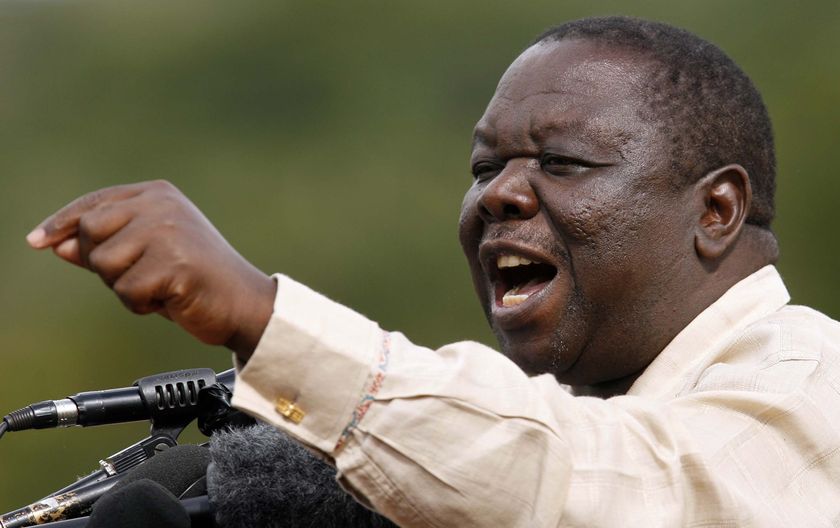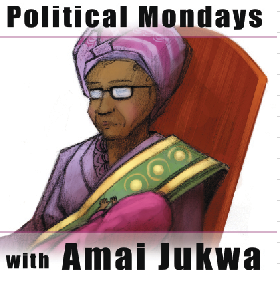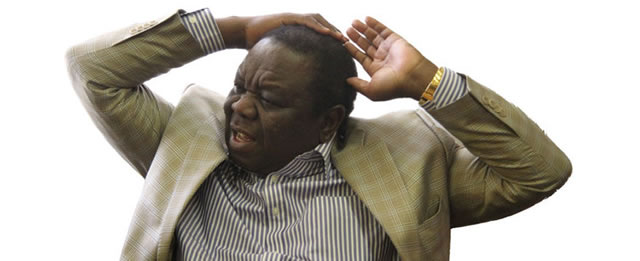Africans must blame themselves

IT has become fashionable to accuse African governments of an assortment of inadequacies. Perhaps these accusations are not without basis. Some African leaders are largely unimaginative, failing to deliver even the most elementary of public services. Corruption has been elevated to a system of government and all these misdeeds are coloured by a worrying impudence born of impunity.
The challenge is that we devoted considerable measure of effort in documenting the obvious. Even market traders know of government corruption and inefficiency. It seems to me quite a waste of effort to harp on endlessly about realities that are not open to the persuasion of the pen. There must be a more excellent way.
What we have failed to understand is that the governments we have are an exact representation of the societies from which they are hewn. There is nothing surprisingly untoward in the manner in which our governments conduct themselves.
The same incompetence, impudence, corruption, greed and inefficiency that we so abhor in our leaders can be observed in our homes, private businesses and communities.
A preacher friend once explained an interesting concept to me on the subject of money and human nature. He argued quite persuasively that money did not change a man but simply revealed what was already in that man.
If a person is of generous persuasion, wealth will quickly reveal this if it ever comes to him. If one is given to boasting money will equally expose this.
If one loves women money will facilitate his worldly desires. Money does not change a man; it simply reveals what is in him. The force of his argument was difficult to resist.
Listening to him I could not resist the political implications of this spiritual wisdom. It immediately became apparent to me that leaders exhibit behaviours that are commonplace at a society level. What they simply do is magnify those behaviours. I have often remarked to friends that if they were placed at the helm of the Reserve Bank they would probably make my dear friend Gono look like a saint. The opportunity has just not availed itself.
I have seen guards allow individuals to jump through to the front of queues. Managers in many private companies routinely push contracts to friends and relatives. This is not uncommon.
One cannot argue that corruption is unique to our governments. It is not. Way before our economic crisis, it was common knowledge that you could speak to the headmaster and get your child a place even if they failed the entrance test. It was acceptable conduct.
Nobody found this behaviour particularly revolting. To expect that headmaster to cast off his corrupt habits the day he joins government is naïve.
Let’s consider the impudence we witness in our government officials and civil servants. I have equally seen business people treat their customers with absolute contempt, refusing to give refunds for faulty goods and answering rudely to enquiries.
Poor customer service is commonplace; it is not unique to government. It seems to me that the problem is not government but a problem at a societal level. We do not impose sanctions for poor customer service at a societal level and this has given rise to a culture of impudence.
One must observe societal tendencies instead of focusing on incidental occurrences. The MDC and its Western handlers make much noise about Mugabe having been in power for 33 years. What they fail to realise is that this has more to do with our culture in Africa and our attitude to leadership.
It is not necessarily a vice. It is a vice viewed through a Western lens but is entirely unobjectionable through the lens of African culture.
This is why Lovemore Madhuku continues to cling to the helm of the NCA despite having exhausted his term of office.
The same is true of Morgan Tsvangirai. He wants to remain at the helm of the MDC and is currently uprooting every voice calling for leadership renewal. Tsvangirai is oblivious to the fact that by 2018 he will have been at the helm of the MDC for 18 years. This would mean voters born in 2000 would have known only one face of opposition.
Consider Zaoga, one of the largest churches in the world. Baba Guti is still at the helm. Presumably he will die as head of that church. There is talk of his wife taking over if he passes on. The reader must not think that the members of this church are opposed to his continued stay at the helm.
Many are perfectly content and are entirely disinterested in talk of a democratic hand over of the Apostleship. It brings us back to the issue of societal attitudes. It cannot be the case that a society is entirely unexcited by the concepts of good customer service, efficiency and transparency but a government somehow excels at those values.
Values do not trickle down from governments. Instead, societal values are expressed through governments because these governments are hewn from society.
Many well to do individuals in Harare find nothing objectionable in paying their domestic workers US$100. To expect such an individual to become a champion of a living wage if they ever come to government is naïve.
In the same way, the treatment of domestic workers betrays societal attitudes. Many domestic workers are grossly overworked. These are our values (or the lack of them) as a society.
If an editor of a daily paper can spend US$140 on dinner at plush restaurant but still pay his maid US$100 at the end of the month, why does he think it is vulgar for the government officials to be driving top-of-the-range vehicles?
There is a temptation to imagine government officials as being inherently inconsiderate by virtue of their being in government. This is a poorly considered view that ignores societal attitudes with respect to fairness and equity. Executives who pay their domestic workers US$100 are evidence of this.
They have no concept of equity or reasonableness. This is not necessarily because they are bad people, they learnt these behaviours from our society.
Let’s examine political violence. It is commonplace for pickpockets to be physically assaulted by the public. Even establishments like supermarkets routinely mete out violence when thieves are caught in their stores. Society does not object to this use of violence.
The challenge is that we have not explored what this actually means. It seems that the African views violence as appropriate if someone is the wrong.
This might seem a benign state of mind at first instance but a closer examination shows the danger of this. The state of being right or wrong is not subject to objective analysis. So it can be the case that a Zanu-PF cadre might perceive that an MDC supporter is “wrong” to support sanctions and as such should be punished through violence.
Welshman Ncube recently lifted the lid on the terrible beatings meted out at Harvest House by rowdy youths. We all saw the pictures of a bloodied Trudy Stevenson when she dared challenge Tsvangirai. Some thought her move was “wrong” and as such she was beaten up.
All this comes back to the values we espouse as a society. A child who grows up knowing that it is justifiable to beat someone up if they are wrong will likely do exactly that if he later becomes a police officer and arrests a person he believes is wrong.
This is where our media must come into action. Instead of championing political positions and further polarising the nation, the media must champion these unobjectionable values. Once values are embraced at a societal level they will quickly find themselves expressed in the leadership.
Ndatenda
Ndini muchembere wenyu Amai Jukwa










Comments